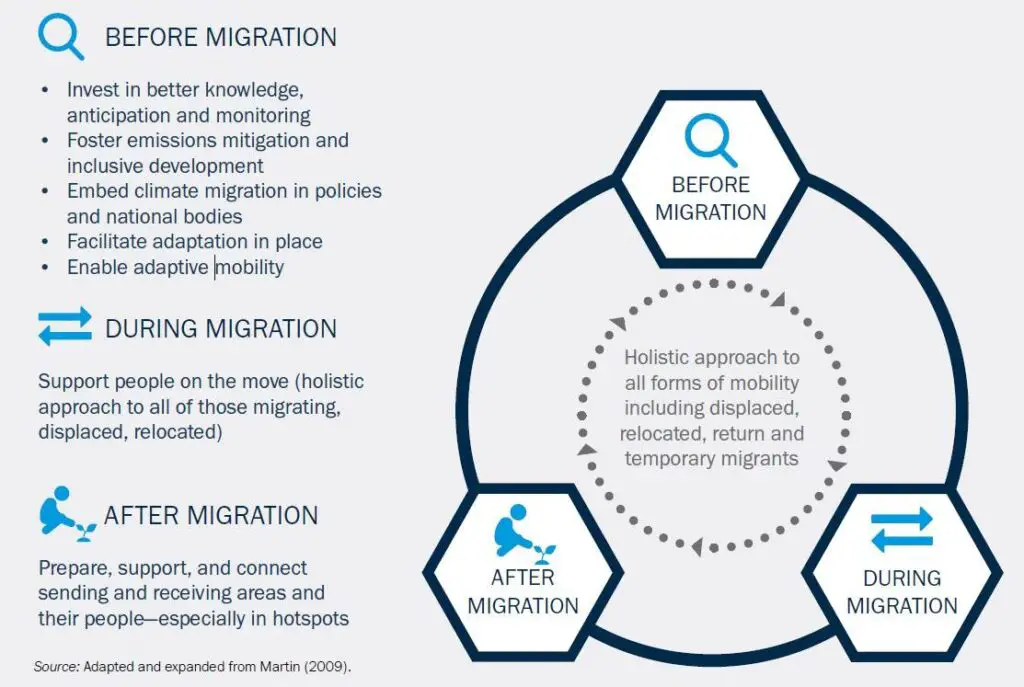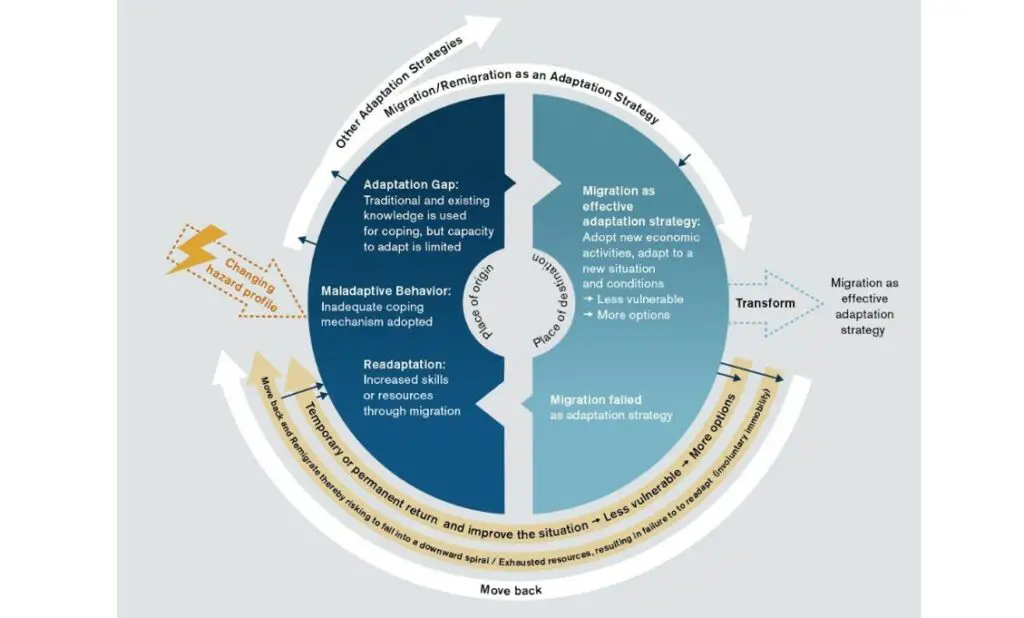Understanding the Impact of Climate Change on Migration Trends
As the climate continues to change, the world is experiencing shifts that are influencing patterns of migration. It is important to understand how these changes are impacting migration trends so that we can adequately prepare for the challenges ahead.
How Climate Change is Driving Migration
Climate change is causing more frequent and intense natural disasters, such as hurricanes, wildfires, and droughts. These events are displacing people from their homes and communities, forcing them to seek refuge elsewhere. Understanding the push factors of migration due to climate change is crucial in developing effective strategies for response and adaptation.
Rising Sea Levels and Displacement
One of the most immediate impacts of climate change is the rise in sea levels, which threatens coastal communities around the world. As sea levels continue to rise, low-lying areas are at risk of being submerged, leading to mass displacement of populations. It is important to consider how these communities will be impacted and where they will go as their homes become uninhabitable.
Challenges Faced by Climate Migrants
Climate migrants face a myriad of challenges as they are forced to leave their homes due to the impacts of a changing climate. These challenges can range from finding new housing to culturally integrating into a new community. Understanding these challenges is essential in order to effectively support climate migrants during their relocation process.
Access to Resources and Basic Needs
One of the most pressing challenges faced by climate migrants is accessing resources and meeting their basic needs in their new locations. From food and water to shelter and healthcare, climate migrants often struggle to secure these necessities as they adjust to their new surroundings. Providing support in these areas is crucial to ensuring the well-being of those displaced by climate change.
Mental Health and Well-being
The emotional toll of being uprooted from one’s home and community can have lasting effects on the mental health and well-being of climate migrants. Feelings of loss, grief, and uncertainty are common among those forced to migrate due to climate-related disasters. It is important to provide mental health support and resources to help climate migrants cope with the psychological challenges of displacement.

Strategies for Mitigating the Impact of Climate Migration
In order to address the challenges posed by climate migration, it is essential to develop strategies that focus on both short-term and long-term solutions. By implementing proactive measures, we can help mitigate the impact of climate migration and support those affected by the changing climate.
Early Warning Systems and Disaster Preparedness
Implementing early warning systems and disaster preparedness initiatives can help reduce the impact of climate-related disasters on vulnerable communities. By providing timely information and resources, we can empower communities to better prepare for and respond to natural disasters, ultimately reducing the need for mass migration in the aftermath of such events.
Sustainable Development and Resilient Infrastructure
Investing in sustainable development and constructing resilient infrastructure can help mitigate the impacts of climate change on communities at risk of displacement. By building strong and adaptable infrastructure, we can create more resilient communities that are better equipped to withstand the challenges posed by a changing climate.
Community Engagement and Empowerment
Engaging with local communities and empowering them to take an active role in decision-making processes can help build resilience and foster self-reliance among vulnerable populations. By involving community members in the planning and implementation of adaptation strategies, we can ensure that their needs and perspectives are taken into account, ultimately leading to more effective and sustainable solutions.

The Role of Policy and Governance in Climate Migration
Policy and governance play a critical role in addressing the challenges of climate migration and supporting those affected by the impacts of a changing climate. By implementing policies that prioritize the needs of climate migrants and promote sustainable development, governments can help ensure the well-being of displaced populations and build resilient communities.
International Cooperation and Multilateral Agreements
International cooperation and multilateral agreements are essential in addressing the complex challenges posed by climate migration. By working together at the global level, countries can develop comprehensive strategies for supporting climate migrants and promoting sustainable development. Cooperation among nations is crucial in fostering solidarity and shared responsibility in the face of a changing climate.
Inclusive Policies and Human Rights Protections
Creating inclusive policies that protect the human rights of climate migrants is essential in ensuring that their needs are met and their dignity is respected. By upholding the rights of all individuals, regardless of their migration status, governments can create a more equitable and just society for those affected by climate-related displacement. Protecting the rights of climate migrants is essential in upholding the principles of justice and fairness in our response to the challenges of migration in a changing climate.
Capacity Building and Knowledge Sharing
Building the capacity of governments, communities, and institutions to respond to the challenges of climate migration is crucial in developing effective and sustainable solutions. By sharing knowledge and best practices, we can enhance our collective understanding of the impacts of climate change on migration and develop innovative strategies for adaptation and resilience. Capacity building and knowledge sharing are essential in empowering communities to address the challenges of climate migration and build a more sustainable future for all.

Conclusion
As the world continues to grapple with the challenges of migration in a changing climate, it is imperative that we work together to develop proactive and comprehensive solutions that prioritize the needs of those most affected by the impacts of a warming planet. By understanding the root causes of climate migration, addressing the challenges faced by climate migrants, and implementing effective strategies for mitigation and adaptation, we can build more resilient and sustainable communities that are better prepared to face the challenges of a changing climate. Let us embrace the opportunity to create a future that is more just, equitable, and secure for all.

